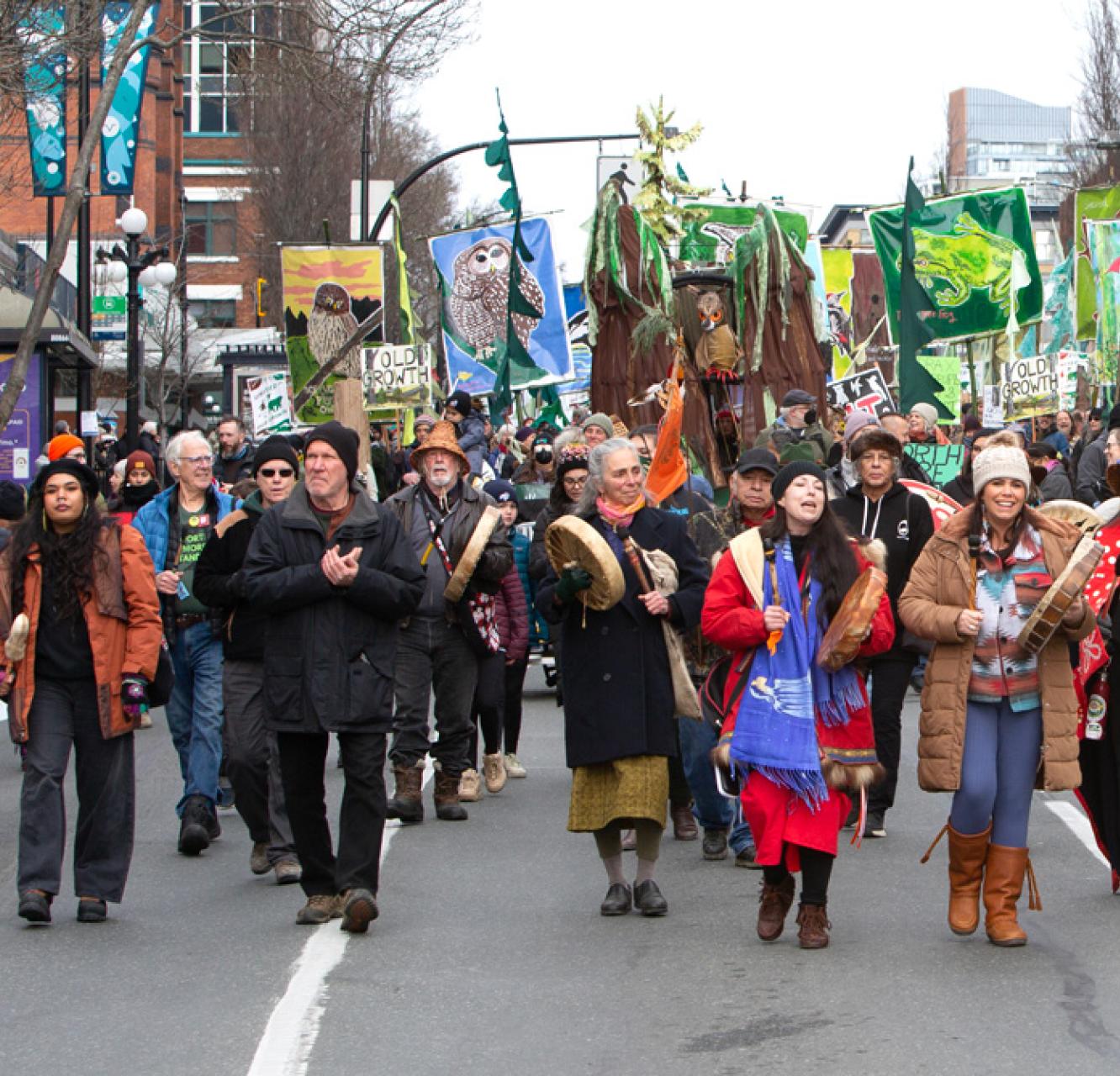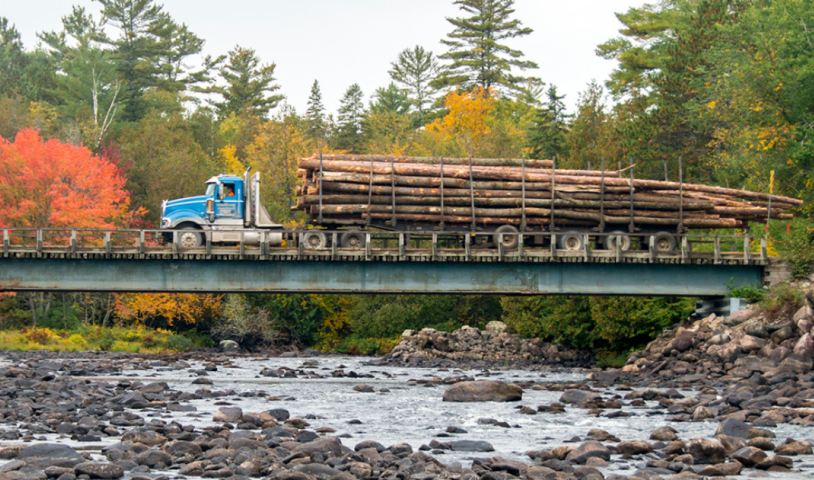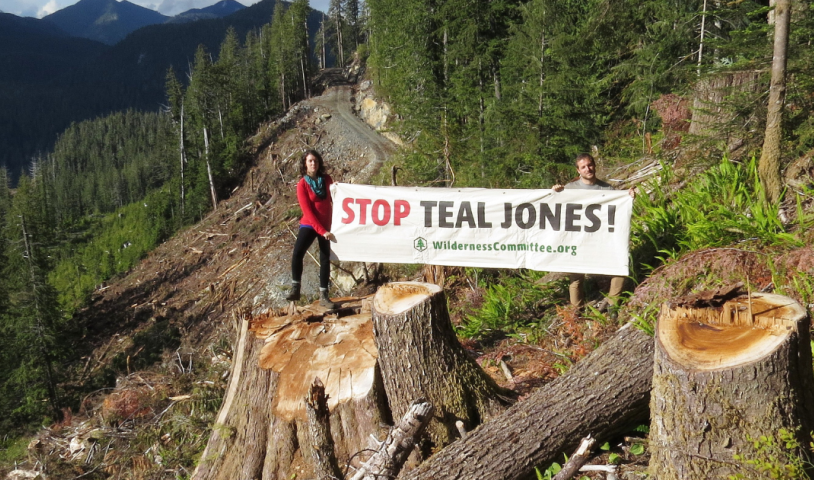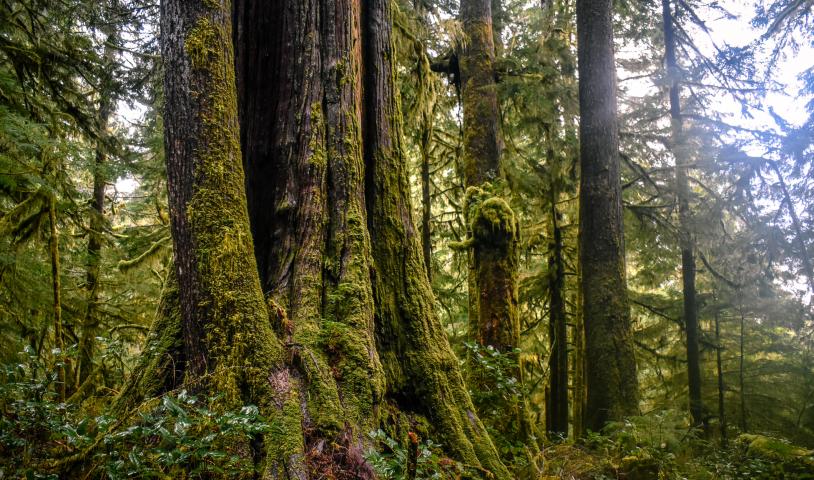Old‑growth forest debate ignites discussion
Wednesday, November 8, 2017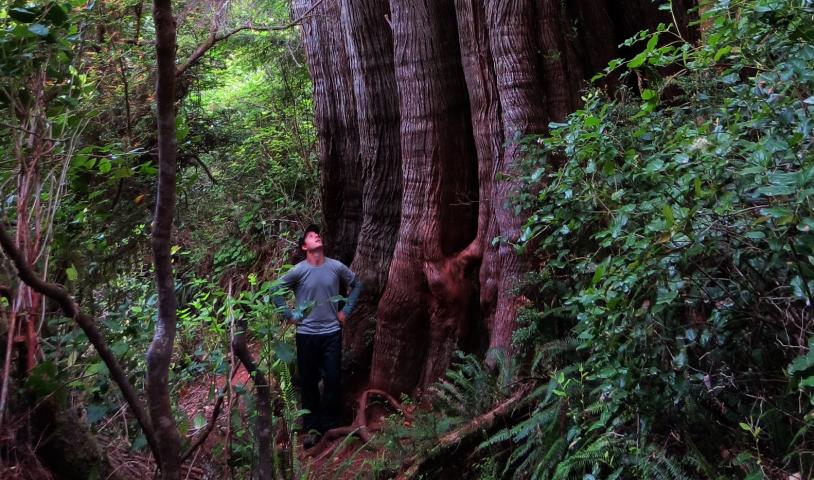
Old growth debate returns to Port Hardy
Hannah Peterson - Mark Worthing from the Sierra Club BC gives a presentation at the "Let's Talk Forests" event at Cafe Guido.
A returning discussion series about old-growth forest once again drew a passionate crowd of foresters and residents from all over the North Island.
It was a full house at Cafe Guido in Port Hardy on Nov. 2, where the Sierra Club BC and the Wilderness Committee hosted their discussion series “Let’s Talk Forests”.
After an introduction by Kwakiutl Chief Rupert Wilson, a presentation was given by the event’s hosts Mark Worthing, a Conservation and Climate Campaigner for the Sierra Club BC, and Torrance Coste, a Vancouver Island Campaigner for the Wilderness Committee. The two outlined their positions and concerns for the state of old-growth forests on Vancouver Island.
“It is our organization’s perspective that Vancouver Island’s original forest covers the original ecosystems that are at the brink of collapse and that the timing is an extremely unfortunate one in relation to our climate context, ocean acidification, and degradation,” said Worthing.
Worthing also spoke about the previous event held in Port Hardy, which took place last March. “It was kind of tense, it was kind of awesome,” said Worthing, adding, “we learned a lot, we found nerve points where we learned what was really sensitive – there were ways we were not using our language that was inclusive or collaborative, so we are looking to shift that a bit.”
Coste further clarified the Wilderness Committees position during his presentation. “We see the current state of old growth and the current state of the forest on Vancouver Island as an ecological emergency.”
He said they weren’t interested in solutions that protect ecosystems but ignored Indigenous Nations or workers that depend on the forestry industry, and “whether you take me on my word or not on that it’s up to you, but it’s our honest intentions.”
Many topics were addressed during the discussion portion of the event, with those in the audience quick to jump in by asking a question, making a statement, or clarifying a point.
“To be frankly honest, I moved up to Port McNeill in 1979 because I married a faller,” said Port McNeill Mayor Shirley Ackland. “Forestry raised my family and it is kind of like a red rag to a bull for small communities that live, breath, eat, and raise their families in forestry to have people that come from a different area telling people up here how our ecosystems need to be preserved, or what we need to do.”
She also noted a motion has come forward at the Union of British Columbia Municipalities (UBCM) to support the formation of an advisory committee focused on the management and preservation of old-growth forests which would consist of First Nations, local government representatives from forestry communities, industry and environmental representation.
“Because everybody needs to be in on the conversation,” said Ackland, adding, “this is wonderful for the community, but we all need to be around the table at the same time.”
Megan Hanacek, a biologist with the Association of BC Forest Professionals, added, “What you are proposing would primarily fall north of Campbell River. I think if you are looking for input you need to really engage the communities north of Campbell River.”
A debate also occurred over the percentage of protected “productive” and “non-productive” old growth, with Hanacek and the presenters concluding they were “coming up with different numbers”.
The conversation also turned towards the economy as a whole and forestry’s place in it.
“You touched very briefly on the fact that we have the richest resources in a very rich country and we are creating the least amount of actual real economic bonus for our communities,” said Garth Holden, a street outreach worker. “Day in and day out I deal with the realities of a collapsed economy.”
‘Namgis Chief Don Svanvik brought up the question of stumpage, the fee that businesses or individuals pay when they harvest timber from Crown land in B.C. “What I don’t hear talked about is stumpage, the province has got a license to print money with it.”
Port Hardy Coun. Fred Robertson noted that “we are a resource-based community that is transitioning.”
After echoing Mayor Ackland’s comments that everyone needs to be at the table, he added, “it’s about bringing people in from government as well – but from our perspective, it’s pretty simple we want to see the sustainable benefits from the forests stay in our communities.”
After over an hour of discussion from a variety of differing perspectives, the event concluded with Worthing and Coste offering to speak with participants individually if they had further comments to make.
Port Hardy was one of six stops on the tour, discussions also took place in Campbell River, Duncan, Nanaimo, Port Alberni, and Courtenay.
